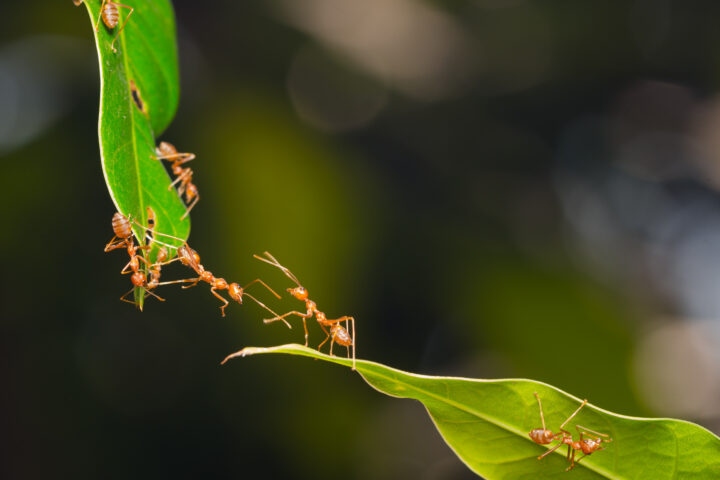
Feed additive against global warming
The methane emissions of farm animals contribute significantly to global warming. DSM is now bringing to market a feed additive that significantly reduces methane emissions from cows. Just one teaspoon per cow is expected to reduce emissions by up to 90 percent. The product is manufactured by a company based in Valais.
Tuesday, March 22, 2022
Agriculture accounts for around 40 percent of global methane emissions. Livestock farming in particular produces huge quantities of methane. Intestinal gases, for example from cows, have a massive impact on the climate when they are released into the atmosphere. As reported by the "Walliser Bote", the Dutch company Royal DSM has developed an innovative feed additive that reduces methane emissions from cows by 30-90 percent. The product called "Bovaer" is based on the compound 3-nitrooxypropanol (3-NOP) and is manufactured by the Valais-based company "Valsynthese" on behalf of DSM in Gamsen for introduction to the global market.
Effective Methane Reduction
Bovaer has already been approved in many countries, including Brazil and Chile, and since March 2022 has also been approved in the EU. Approval for Switzerland is expected to take place soon. The European Food Safety Authority (EFSA) commissioned a scientific study on the effectiveness of the feed additive in relation to methane emission reductions. A positive result was obtained in November 2021. The study confirmed that Bovaer effectively reduces methane emissions from dairy cows. According to EFSA, the feed additive in the recommended maximum quantities is harmless to the health of both cows and consumers.
Harmless to humans and animals
Swiss authorities also come to the same conclusion. Michael Schmidhalter of the Visp Agricultural Center says to the "Walliser Bote": "This feed additive is therefore harmless to humans and animals, provided the precautions for use are observed." Also, the performance of the cows does not suffer from the feed additive. The available studies are promising. The biggest problem with Bovaer will be the application by farmers. For them, the product means additional financial and labor costs. According to Schmidhalter, policy makers will have to think about appropriate incentive systems.
Despite all the optimism: Bovaer, too, will not be able to completely solve the methane problem in agriculture. The demand for meat is expected to double by 2050, also in view of global population growth. Therefore, the biggest lever is still a meat-reduced diet, as proposed by the EAT-Lancet Commission, for example. It demands a "planetary health diet" with less meat, but more fruit, vegetables and pulses. But we must not pretend: "The culture of non-consumption in Europe is growing, but is at a low level in relation to a world population that first wants to enjoy meat. That is why we will see a further increase in meat consumption globally for many years to come." says Bayer CEO Werner Baumann in an interview with "NZZ".
In addition to conscious dietary changes for those who can afford alternative proteins, technical innovation will therefore also be central to a more sustainable livestock sector. Or again in the words of Werner Baumann in said interview: Today, we can see how relevant agriculture is when it comes to preventing the current threat of famine as best we can. In the long term, the ability to innovate is crucial so that we can feed up to 10 billion people in a sustainable way.
Sources
Walliser Bote, 18 March 2022 (print)
scienceindustries: Scientific innovation reduces methane emissions (source in German)
Related articles

Ant infestation threatens Zurich communities
An invasive ant from the Mediterranean region is spreading rapidly in the canton of Zurich, threatening communities, construction projects, and agriculture. Insecticides could help—but their use remains severely restricted.

Genetic scissors for the future – soon in Switzerland too?
Genome editing is seen as a promising way to make agriculture more sustainable and climate-resilient. But Switzerland is hesitant to approve it. A popular initiative even wants to ban it. But what can CRISPR really do?

Less than 50 percent: How Switzerland is squandering its self-sufficiency
Swiss agriculture is under enormous pressure. Extreme weather conditions, pests and increasingly stringent regulations are putting producers under strain. As a result, self-sufficiency is falling dramatically, especially for plant-based foods. To ensure food security in Switzerland, effective plant protection products are urgently needed.

Only half the truth in the genetic engineering debate
Those who only see the risks remain blind to the opportunities offered by a new technology. Opponents of genetic engineering have presented a new survey on new breeding methods, which reveals some telling gaps.

